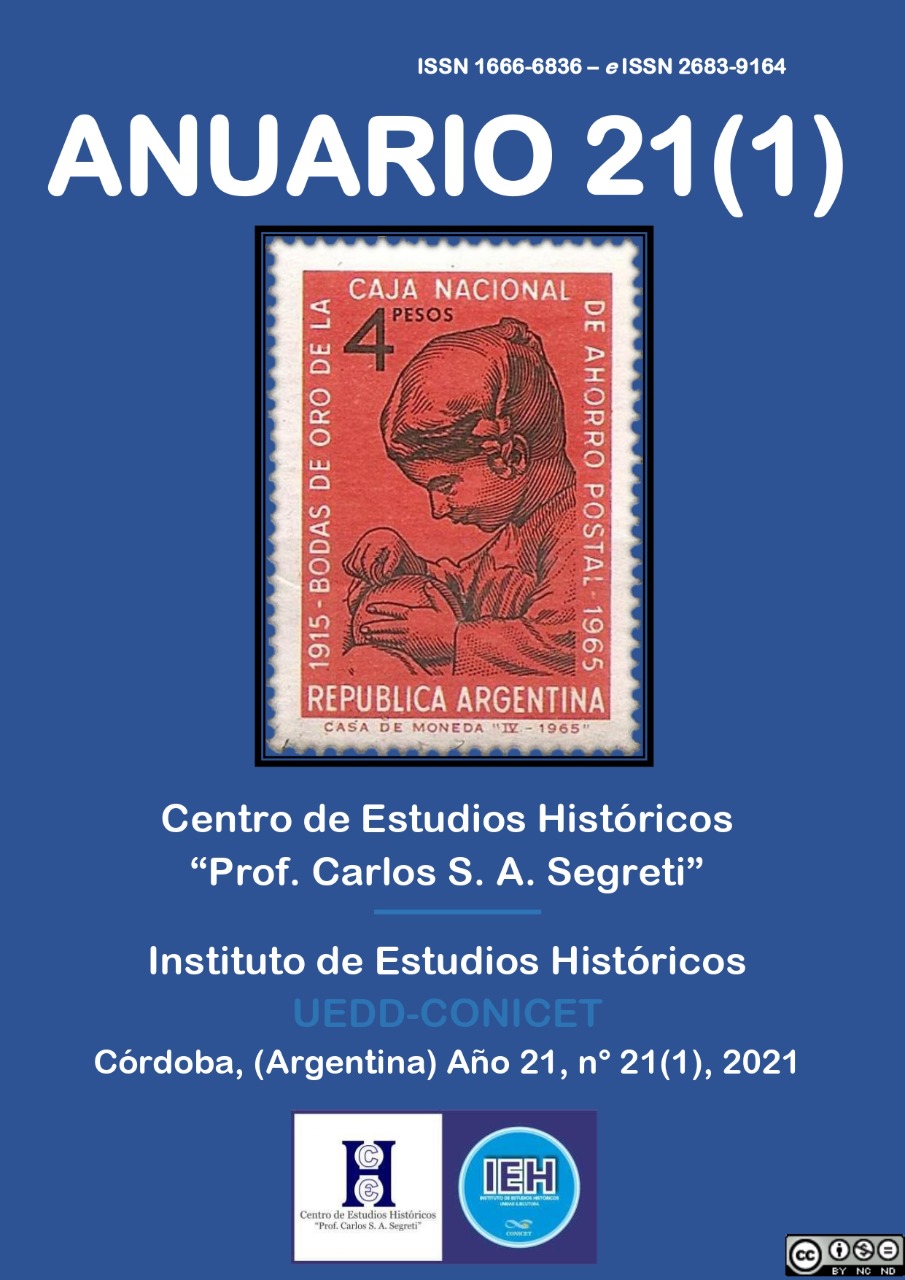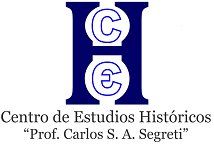Observations on the theoretical foundations of the Bolshevik project of transition to social-ism
DOI:
https://doi.org/10.52885/2683-9164.v1.n21.33946Keywords:
Erfurtianism, political maturation of the proletariat, historical premises of the transition to socialismAbstract
Starting from the historiographic contributions related to the incidence of the programmatic elements in the evolution of the Soviet formation during its first decade of existence, the present work proposes an investigation of the theoretical assumptions that served as the basis for the Bolshevik political platform. The conceptions that this party shared with the European social democratic current explain the meaning of its programmatic prescriptions. From this perspective, it will be argued that this common theoretical background sheds light on the predictions of the Russian communists regarding both the establishment of a workers’ leadership over the “bourgeois specialists” and the consolidation of State Monopoly Capitalism and of the scientific management of the labour process, conceiving these last modalities as historical premises from which the transition to socialism must inevitably be founded.
Downloads
References
AA.VV., “El programa del Partido Socialdemócrata. Erfurt, octubre de 1891”, en Progra-mas del Movimiento Obrero y Socialista. Desde el Manifiesto Comunista hasta nues-tros días, Buenos Aires, Rumbos, 2013.
AA. VV. “Program of the Communist Party of Russia. Adopted at the Eight Party Con-gress, Held March 18 to 23, 1919”, BUJARIN, N. y PREOBRAZHENSKY, E., The ABC of Communism, The Communist Party of Great Britain,1922.
ANWEILER, Oskar, Los soviets en Rusia 1905-1921, Madrid, Zero S.A., 1975.
ARTHUR, Christopher, The New Dialectic and Marx´s Capital, The Netherlands, Kon-inklijke Brill NV., 2004.
ASTARITA, Rolando, Valor, mercado mundial y globalización, Buenos Aires, Ediciones Cooperativas, 2004.
BAILES, Kendall, “Alexei Gastev and the Soviet Controversy Over Taylorism, 1918–24”, en Soviet Studies, 29 (3), 1977, pp. 373-394. http://dx.doi.org/10.1080/09668137708411134
BAILES, Kendall, Technology and Society under Lenin and Stalin. Origins of the Soviet Technical Intelligentsia, 1917-1941, New Jersey, Princeton University Press, 1978.
BARBER, J.D., y DAVIES, R.W., “Employment and industrial labor”, R.W. DAVIES, M. HARRISON, S.G. WHEATCROFT (eds.), The economic transformation of the Soviet Union, 1913-1945, Londres, Cambridge University Press, 1994, pp. 81-105.
BROVKIN, Vladimir, Russia after Lenin. Politics, culture and society. Londres, Routledge, 1998.
BUJARIN, Nikolai, La economía mundial y el imperialismo, Buenos Aires, Ediciones Pa-sado y Presente, 1971.
DÍEZ RODRÍGUEZ, Fernando, Homo Faber. Historia intelectual del trabajo, 1675-1945, Madrid, Siglo XXI, 2014.
FITZPATRICK, Sheila, Education and Social Mobility in the Soviet Union, 1921-1934, New York, Cambridge University Press, 1979.
FITZPATRICK, Sheila, The Cultural Front: Power and Culture in Revolutionary Russia, New York, Cornell University Press, 1992.
GRAZIOSI, Andrea, “Building the First System of State Industry in History. Piatakov's VSNKh and the Crisis of the NEP, 1923-1926”, en Cahiers du Monde russe et so-viétique, vol. 32, núm. 4, 1991, pp. 539-580.
GRAZIOSI, Andrea, “G. L. Piatakov (1890-1937): A Mirror of Soviet History”, en Har-vard Ukrainian Studies, vol. 16, núm. 1/2, 1992, pp. 102-166.
GRONOW, Jukka, On the Formation of Marxism: Karl Kautsky´s Theory of Capitalism, the Marxism of the Second International and Karl Marx´s Critique of Political Econ-omy. The Netherlands: Koninklijke Brill NV, 2016.
HILFERDING, Rudolph, El capital financiero, Madrid, Editorial Tecnos, S. A., 1963.
INGERFLOM, Claudio, “Lenin Rediscovered, or Lenin Redisguised?”, en Kritika: Explo-rations in Russian and Eurasian History, vol. 10, núm. 1, 2009, pp. 139-168.
KAUTSKY, Karl, The Class Struggle (Erfurt Program), Chicago, Charles H. Kerr & Com-pany Co-operative, 1910.
KAUTSKY, Karl, The Dictatorship of the Proletariat, Manchester, The National Labour Press, Ltd., 1934.
KAUTSKY, Karl, La doctrina económica de Carlos Marx, Buenos Aires, Editorial Lauta-ro, 1946.
KOENKER, Diane, Republic of Labor. Russian Printers and Soviet Socialism, 1918-1930, Ithaca, Cornell University Press, 2005.
LIH, Lars T., Lenin Rediscovered. What Is To Be Done? In context, The Netherlands, Kon-inklijke Brill nv, 2006.
LINHART, Robert, Lénin, les paysans, Taylor. Essai d’annalyse material historique de la naissance du systèm productif soviétique, Seuil, Combats, 1976.
LENIN, Vladimir I., “Acerca de la dualidad de poder”, LENIN, V. I., Obras completas. Tomo XXIV, Buenos Aires, Cartago, 1957, pp. 28-31.
LENIN, Vladimir I., “Nuestra tarea inmediata”, LENIN, V. I., Obras completas, Tomo IV, Buenos Aires, Cartago, 1958.
LENIN, Vladimir I., “Sobre las tareas del P.O.S.D.R. en la Revolución Rusa”, LENIN, V. I., Obras completas, T. XXIII, Buenos Aires, Editorial Cartago, 1957, pp. 355-360.
LENIN, Vladimir I., “Sobre la revisión del programa del partido”, LENIN, V. I., Obras Completas, Tomo XXVI, Buenos Aires, Cartago, 1958. pp. 139-169.
LENIN, Vladimir I., “La catástrofe que nos amenaza y cómo combatirla”, LENIN, V. I., Obras completas, T. XXV, Buenos Aires, Editorial Cartago, 1958, pp. 309-356.
LENIN, Vladimir I., “El estado y la revolución. La doctrina marxista del estado y las tareas del proletariado en la revolución”, LENIN, V. I., Obras completas, T. XXV, Bue-nos Aires, Editorial Cartago, 1958, pp. 371-487.
LENIN, Vladimir I., “¿Se sostendrán los bolcheviques en el poder?”, LENIN, V. I., Obras completas, T. XXVI, Buenos Aires, Editorial Cartago, 1958, pp. 75-124.
LENIN, Vladimir I., “El sistema Taylor hace al hombre esclavo de la máquina”, LENIN, V. I., Obras completas, T. XX, Buenos Aires, Editorial Cartago, 1960, pp. 149-151.
LENIN, Vladimir I., “El imperialismo, fase superior del capitalismo”, LENIN, V. I., Obras completas, T. XXII, Buenos Aires, Editorial Cartago, 1960, pp. 197-319.
LENIN, Vladimir I., “¿Cómo organizar la emulación?”, en LENIN, V. I., Obras Comple-tas, Tomo XXVI, op. cit.
LENIN, Vladimir I., “Las tareas inmediatas del poder soviético”, LENIN, V. I., Obras Completas, Tomo XXVII, Buenos Aires, Cartago, 1960.
LENIN, Vladimir I., “La revolución proletaria y el renegado Kautsky”, LENIN, V. I., Obras completas, T. XXVIII, Buenos Aires, Editorial Cartago, 1960.
LENIN, Vladimir I., Obras completas, T. XXXIX, vol. I, Buenos Aires, Editorial Cartago, 1960.
MALLE, Silvana, The Economic Organization of War Communism, 1918-1921, Londres, Cambridge University Press, 1985.
MOSELEY, Fred y SMITH, Tony (eds.), Marx´s Capital and Hegel´s Logic. A Reexamina-tion, The Netherlands, Koninklijke Brill NV., 2014.
ORLOVSKY, Daniel, “State Building in the Civil War Era: The Role of Lower-Middle Strata”, en Koenker, Diane, Rosenberg, William, Suny, R. G. (eds.), Party, State, and Society in the Russian Civil War. Explorations in Social History, Indiana Uni-versity Press, 1989, pp. 180-209.
PIRANI, Simon, “The party elite, the industrial managers and the cells: Early stages in the formation of the Soviet ruling class in Moscow, 1922–23”, en Revolutionary Russia, 2 (19), 2006, pp. 197-228.
RABINOWITCH, Alexander, “The Petrograd First City District Soviet During the Civil War”, KOENKER, D., ROSENBERG, W., SUNY, R. G. (eds.), Party, State, and Society in the Russian Civil War. Explorations in Social History, Blooming-ton, Indiana University Press, 1989, pp. 133-157.
RABINOWITCH, Alexander, The Bolsheviks in Power: The First Year of Soviet Rule in Petrograd, Bloomington, Indiana University Press, 2007.
REMINGTON, Thomas, “Institution Building in Bolshevik Russia: The Case of ‘State Kontrol’”, en Slavic Review, vol. 41, núm. 1, 1982, pp. 91-103.
REMINGTON, Thomas, “The Rationalization of State Kontrol’”, en Koenker, Diane, Ros-enberg, William, Suny, R. G. (eds.), Party, State, and Society in the Russian Civil War. Explorations in Social History, Indiana University Press, 1989, pp. 210-231.
REES, Edward A., State Control in Soviet Russia. The Rise and Fall of the Workers’ and Peasants’ Inspectorate, 1920-1934, New York, Palgrave Macmillan, 1987.
RIGBY, Thomas H., Lenin´s Government: Sovnarkom 1917-1922, New York, Cambridge University Press, 1979.
SHANDRO, Alan, Lenin and the Logic of Hegemony: Political Practice and Theory in the Class Struggle, The Netherlands, Koninklijke Brill nv, 2014.
SIRIANNI, Carmen, Workers Control and Socialist Democracy: The Soviet Experience, Londres, Verso Editions and NLB, 1982.
SGRAZZUTTI, Jorge, OLIVA, Antonio, “Aportes para la comprensión del taylorismo soviético de Octubre a la NEP (1917-1929)”, en Anuario de la Escuela de Historia, 29, pp. 9-47. http://anuariodehistoria.unr.edu.ar/ojs/index.php/Anuario/index.
SMITH, Tony, Dialectical Social Theory and Its Critics. From Hegel to Analytical Marxism and Postmodernism, New York, State University of New York Press, 1993.
SUNY, Ronald Grigor, The Soviet Experiment. Russia, the USSR, and the Succesor States, New Yoork, Oxford University Press. 1998.
TAUB, Rainer, “Lenin and Taylor: the fate of ‘scientific management’ in the (early) Soviet Union”, Telos, núm. 37, 1978, pp. 82-92.
Downloads
Published
Issue
Section
License

This work is licensed under a Creative Commons Attribution-NonCommercial-NoDerivatives 4.0 International License.
Aquellos autores/as que tengan publicaciones con esta revista, aceptan los términos siguientes:
- Los autores/as conservarán sus derechos de autor y garantizarán a la revista el derecho de primera publicación de su obra, el cuál estará simultáneamente sujeto a una Licencia de reconocimiento de Creative Commons. Se puede compartir, copiar, distribuir, ejecutar y comunicar públicamente la obra, siempre que: a) se cite la autoría y la fuente original de su publicación (revista, editorial y URL de la obra); b) no se use para fines comerciales; c) no se altere, transforme o genere una obra derivada a partir de esta obra.
- Los autores/as podrán adoptar otros acuerdos de licencia no exclusiva de distribución de la versión de la obra publicada (p. ej.: depositarla en un archivo telemático institucional o publicarla en un volumen monográfico) siempre que se indique la publicación inicial en esta revista.
- Se permite y recomienda a los autores/as difundir su obra a través de Internet (p. ej.: en archivos telemáticos institucionales o en su página web) después del proceso de publicación, lo cual puede producir intercambios interesantes y aumentar las citas de la obra publicada. (Véase El efecto del acceso abierto).









